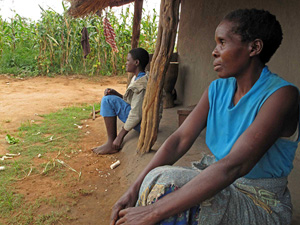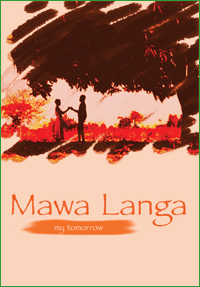 My experience in Malawi has most certainly changed my perspective of the world.
My experience in Malawi has most certainly changed my perspective of the world.
One thing that really stands out is how misguided our attitude to development is. The current debate about the aid budget highlights the complete ignorance of many to the levels of poverty that countries such as Malawi have to tackle. But the very existence of such poverty shows how deeply rooted the problem is.
I simply do not understand how we can tolerate poverty and suffering on the scale that I often saw in Malawi. We would not tolerate an under-five child mortality rate of 15% in Wales, or an AIDS infection rate of 30% in Scotland. Nor would we allow people in France to go hungry because the harvest has not been sufficient.
We prioritise the bailouts of European economies over the education of millions of people worldwide. We tolerate the premature deaths of hundreds of thousands of people across the globe from malaria when we can buy preventative drugs in our pharmacies for a few pence each. We spend more on agricultural subsidies than we do on ensuring that people on this earth have enough to eat. How can we justify this? Because these people were born on a different continent?
Arguments against aid are invariably deeply misguided. The reason why people starve in poor countries is not because they ‘have too many children’ as I heard one pundit say the other week. It is because they do not have the infrastructure to guarantee harvests. Malawians do not go hungry every year. Indeed, in a good harvest the country will export maize. It is because the country does not have sufficient irrigation in place to ensure that the country does not rely on the rains. Surely we can do something to fix this?!
Nor is it logical that corruption should result in the removal of aid. Corruption certainly requires us to rethink our strategy on aid, and ensure that we do not keep filling up the Swiss bank accounts of despotic rulers (of which there are now very few). But to deny children an education because their government is corrupt is hardly rational or indeed fair.
The idea that in times of austerity we should cut our aid shows how misguided the advocates of that argument are. The closure of a local library cannot be compared to the removal of funding for anti-retroviral drugs to enable people to live, nor the opportunity for children to go to school. Yet it seems many people equate the two.
Poverty in Malawi is not our fault. But it most certainly is our moral responsibility to do all we can to alleviate it. I find it amazing that the Daily Mail can rage against bankers’ bonuses while at the same time urging the government to cut back foreign aid. It seems their attitude to inequality is radically different when they are at the bottom to when they are at the top.
Aid alone is not the answer. Neither is the bizarre concept of raising awareness, which in fact has bred an acceptance of and apathy towards death and poverty. I do not have the answer. But I know that one can be found; it will just take time and dedication. For a start, aid must be supported with people on the ground, and with time and effort; transparency must be improved; and aid cannot be used as a political weapon that the recent threats by the UK government to Malawi indicate it currently is.
Most of all, we must acknowledge that it is our responsibility to help. Living in Malawi for a year brought home to me what a privilege it is to live in a country where there is not a 15% chance my children will die before they are five – and where I can expect to live to see their children being born.
The privilege of living in the UK is one we have not earned as individuals. But we can use it to alleviate suffering in countries like Malawi – and it is our moral obligation to do so.
by willm,
SOURCE : Letters from MW
Subscribe to our Youtube Channel:

.jpeg&w=60&q=100&h=60)




.jpeg&w=60&q=100&h=60)





